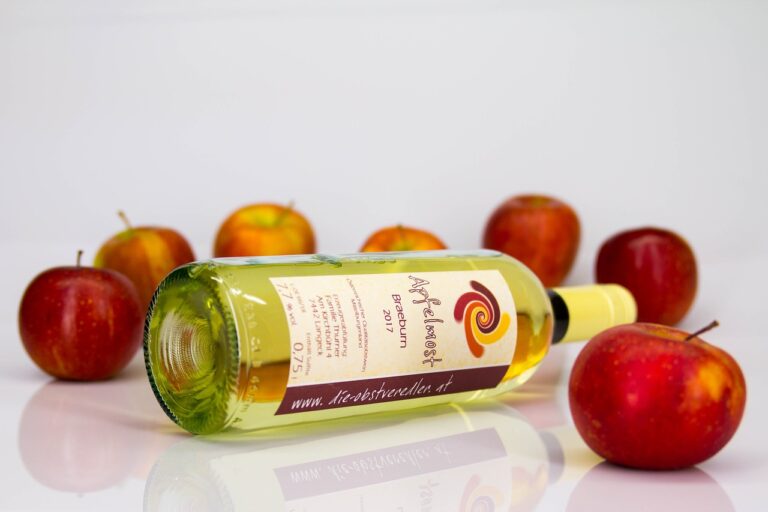You hear about all the benefits of apple cider vinegar, right? It’s antioxidant-packed, it’s full of vitamins and minerals, and it can help to improve digestion. But here’s the question: Is Apple Cider Vinegar Dehydrating?
We’ve got all the answers you need here.
Before jumping into the answer, however, let’s talk briefly about what dehydration is and why it matters.
Dehydration can be defined as a state of inadequate water intake that causes an imbalance in bodily fluids.
This can affect everything from your skin to your energy levels and overall health.
Now let’s get to the main event: Is Apple cider vinegar dehydrating? The short answer is no—but there are factors at play that you should know about before you start taking ACV every day.
In this article, we’ll explore the truth behind this popular question and uncover all you need to know about ACV and hydration!
The Effects of Apple Cider Vinegar on Hydration
Apple cider vinegar (ACV) has been touted for its potential health benefits, but its effects on hydration are not as well-known or widely studied.
Here, we’ll explore some of the limited information available on how ACV may impact hydration levels.
Electrolyte balance
ACV contains small amounts of potassium, an essential electrolyte that helps regulate fluid balance within the body.
Consuming ACV may help maintain adequate potassium levels, which can contribute to proper hydration.
However, the potassium content in ACV is relatively low, so relying on ACV alone as a significant source of potassium is not recommended.
Diuretic effect
Some anecdotal evidence suggests that ACV may have a mild diuretic effect, possibly due to its acetic acid content.
A diuretic substance increases urine production, which can lead to fluid loss and potentially affect hydration levels.
However, more research is needed to confirm this effect and determine its significance.
Digestive health and water absorption
ACV is believed to improve digestion by stimulating the production of stomach acid and digestive enzymes.
Improved digestion can lead to better absorption of water and nutrients, which may positively impact hydration.
However, scientific evidence supporting this claim is limited.
Hydration through dilution
ACV is often consumed diluted with water.
Drinking this mixture can contribute to daily water intake, helping maintain proper hydration levels.
It’s important to note that while ACV may have some indirect effects on hydration, it should not be used as a replacement for water or sports drinks designed to replenish fluids and electrolytes during and after exercise.
To maintain proper hydration, it’s essential to consume adequate water and electrolytes throughout the day, especially during periods of physical activity or in hot weather.
If you’re considering incorporating ACV into your routine for its potential health benefits, it’s always a good idea to consult with a healthcare professional to ensure it’s suitable for your individual needs and circumstances.
Possible Side Effects of Drinking Too Much ACV
Drinking too much apple cider vinegar (ACV) can lead to several potential side effects.
It’s essential to consume ACV in moderation and dilute it with water to avoid these issues.
Some possible side effects of excessive ACV consumption include:
Tooth enamel erosion
The acetic acid in ACV can weaken and erode tooth enamel, leading to increased sensitivity and a higher risk of cavities.
To mitigate this risk, dilute ACV and avoid consuming it undiluted.
Digestive issues
Drinking large amounts of ACV may cause digestive discomfort, including stomach pain, nausea, and heartburn.
Acidic substances like ACV can irritate the stomach lining and exacerbate existing gastrointestinal issues, such as acid reflux or ulcers.
Low potassium levels
Excessive ACV consumption may lead to low potassium levels (hypokalemia), which can cause muscle weakness, cramps, and irregular heartbeat.
Although ACV has some potassium, too much acetic acid can interfere with potassium absorption.
Bone density loss
Long-term, excessive consumption of ACV has been linked to decreased bone density, which increases the risk of osteoporosis.
This may be due to the acid’s potential to interfere with calcium absorption.
Drug interactions
ACV can interact with certain medications, such as insulin or diuretics, potentially leading to adverse effects.
Always consult a healthcare professional before incorporating ACV into your routine if you are taking any medications.
Skin irritation
Applying undiluted ACV directly to the skin can cause burns or irritation.
If using ACV topically, always dilute it with water and perform a patch test to ensure you don’t have an adverse reaction.
Tips for Incorporating ACV Into Your Diet
Incorporating apple cider vinegar (ACV) into your diet can be beneficial, but it’s essential to do so safely and in moderation. Here are some tips for adding ACV to your daily routine:
Start small
Begin with a small amount of ACV (1 teaspoon) and gradually increase the dosage to a maximum of 1-2 tablespoons per day.
This will help your body adjust to the acidity and reduce the risk of side effects.
Dilute with water
ACV is acidic, so it’s crucial to dilute it with water before consuming it.
A common ratio is 1-2 tablespoons of ACV per 8 ounces of water.
Mix with other beverages
If you find the taste of ACV and water unpalatable, try mixing it with other beverages like herbal tea, fruit juice, or a smoothie to mask the flavor.
Rinse your mouth
After consuming ACV, rinse your mouth with water to remove any remaining acid and protect your teeth.
Avoid consuming on an empty stomach
Drinking ACV on an empty stomach may increase the risk of stomach discomfort and indigestion. Try consuming it with a meal or snack instead.
Remember that moderation is key, and ACV should not be considered a cure-all.
Incorporate it into a balanced diet alongside other healthy habits for the best results.
FAQs
Apple cider vinegar (ACV) and its relationship with dehydration is a topic that may raise some questions. Here are some frequently asked questions about ACV and dehydration:
1. Can ACV cause dehydration?
ACV does not directly cause dehydration.
However, excessive consumption of any vinegar, including ACV, can lead to an increased risk of stomach issues, which may result in a loss of fluids.
2. Can ACV help with dehydration?
ACV is not a remedy for dehydration.
To treat dehydration, it’s crucial to consume water or electrolyte-rich beverages, such as sports drinks, coconut water, or oral rehydration solutions.










